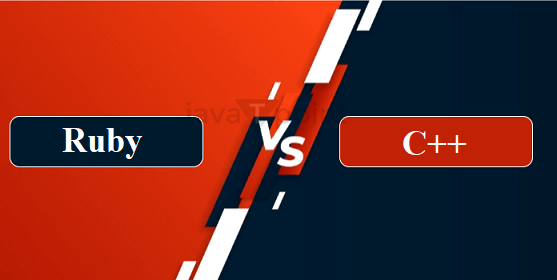Difference between C++ and RubyIn this article, we will discuss the difference between the C++ and Ruby. But before discussing these differences, we must know aboutC++ and Ruby. What is C++ Programming Language?C++ is a high-level, general-purpose, object-oriented programming language, which is developed by Bjarne Stroustrup. It has many features like object-oriented programming, manual memory management, compile-time checking, pointers, Templates, operator overloading, exceptions, and many standard libraries. This language is well-suited for developing a wide range of applications, and it continues to be a popular choice for programmers today. It is often used for system programming, game development, and scientific computing. This language is used for developing operating systems, game development, scientific computing embedded systems, and web development. It is known for its efficiency and performance. It gives programmers a high degree of control over hardware. It has a large and active community for developing, making finding help and support accessible. What is Ruby Programming Language?Ruby is a dynamic, open-source programming language. It was created and developed by Yukihiro Matz Matsumoto. It has many features like dynamic Typing, object-oriented, garbage collection, and interpreter, which allows easy prototyping, mutable strings, single inheritance, and built-in exception handling, This language is well-suited for rapid prototyping and scripting problems. It is known for its elegant syntax, which makes it easy to read and write code. It also has a large and active community of developers for developing and increasing the language standards. Ruby has incorporated changes and enhancements to align with emerging standards and best practices in software development. New paradigms such as microservices, cloud computing, and containerization have influenced the evolution of ruby. Security is a critical aspect of any programming language, but Ruby has evolved to address security concerns by introducing features and best practices to help developers write more secure code. Similarities between the C++ and Ruby languages:There are several similarities between C++ and Ruby. Some main similarities between C++ and Ruby are as follows:
Both Ruby and C++ will support object-oriented programming utilizing classes and objects for organizing code and data. This approach encourages code reuse, encapsulation, and many more real-world entities, contributing to maintainability and scalability in software development.
In both languages, variable types are determined at runtime, offering flexibility by allowing developers to assign different kinds of values to variables during program execution. This dynamic nature simplifies code writing and enhances productivity.
Both languages will provide mechanisms to manage errors and unexcepted situations. By using the try-catch blocks in C++ and employing the begin-rescue-end structure in Ruby, developers can create robust error-handling strategies, improving the reliability of applications.
They allow developers to write code that can run on various operating systems without modification. This characteristic is crucial for ensuring the portability of applications across different environments. Making the process adaptable to diverse deployment scenarios.
Both Ruby and C++ support operator overloading, allowing developers to define user-defined operators such as '+', '*', and others. This feature enhances expressiveness in code by enabling developers to work with user-define types like built-in types.
Ruby and C++ support concurrency and parallelism. Ruby employs green threads for concurrency and is suitable for I/O-bound tasks, while C++ supports multithreading and enables the developers to handle both I/O and CPU-bound tasks concurrently. This similarity underscores their adaptability to diverse application requirements, from web development to performance-critical systems programming. Differences between the Ruby and C++ languages:
There are several differences between C++ and Ruby. Some main differences between C++ and Ruby are as follows:
Next Topicis_pod function in C++
|
 For Videos Join Our Youtube Channel: Join Now
For Videos Join Our Youtube Channel: Join Now
Feedback
- Send your Feedback to [email protected]
Help Others, Please Share










